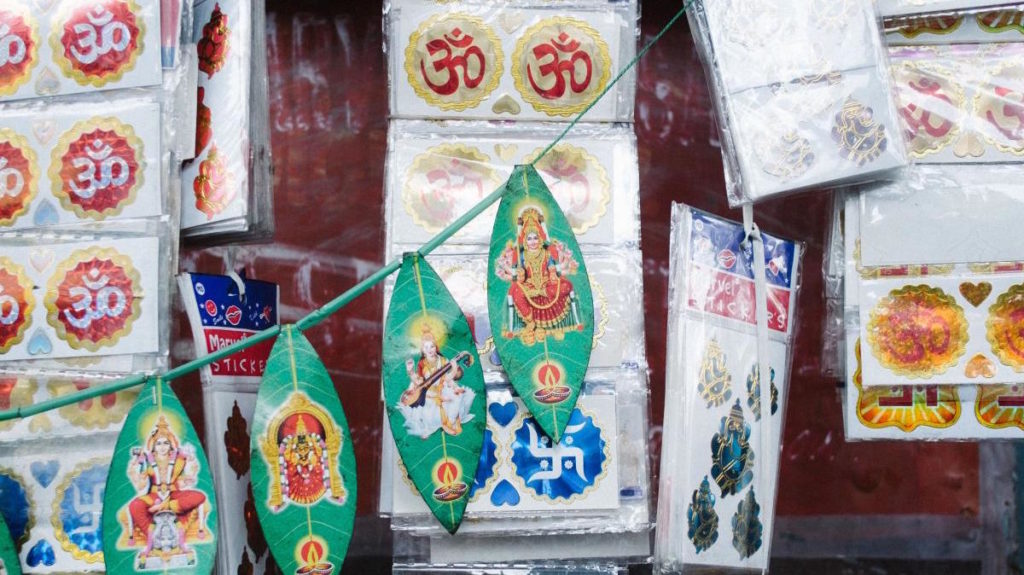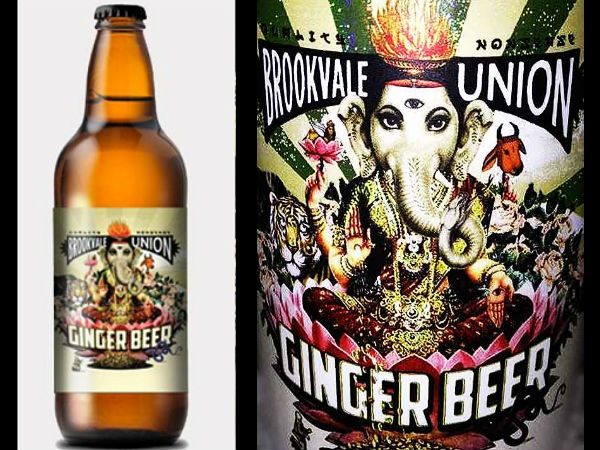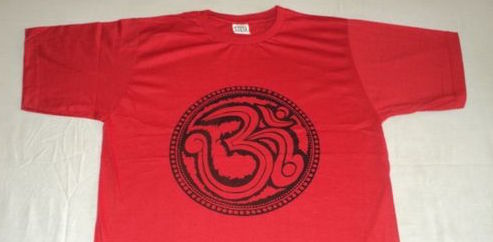To Use or Not To Use? Guidelines for Commercial Use of Hindu Images.

In the past several years we’ve seen Ganesh toilet seats, Kali underwear, Krishna bathmats, Om flip flops, and countless other items displaying Hindu sacred imagery in ways that many Hindus find disrespectful at best or downright offensive at worst.
Though Hindu imagery is regularly used in a commercial context to market many domestic items, both in India and the United States, there are certain guidelines that are generally observed.
In India, there is an often unspoken understanding on what is and is not appropriate usage of images of deities and of sacred symbols. Intent also matters. Often sacred iconography is used in advertising or placed on Indian products and businesses to invoke blessings for the endeavor. Outside of India, however, these standards may well not be known and any intent to invoke blessings isn’t necessarily at play.
Here are some general guidelines for manufacturers, retailers, and marketing departments for where images of Hindu deities and other religious symbols shouldn’t be used, not only to avoid causing offense, but to be culturally respectful with iconography that over 1 billion Hindus around the globe consider sacred.
Dont do it – will cause offence

Bathmats, toilet seats or seat covers; underwear (men’s or women’s), socks, pants or shorts; footwear, of any type and material; swimwear; door mats, rugs; alcohol, meat; yoga mats, skateboards, anything where the image is likely to be destroyed through normal intended usage, intended to be stepped upon; anything intended to be placed in spaces reserved for defecation, or placed on or near bodily organs of reproduction and elimination.
Caution – may cause offence

Bath towels, shower curtains, dish towels; mouse pads; leather items; any item with significant material modification of a Deity (placing non-traditional items in the hands of Nataraja, for example); any item that is likely to get regularly dirty through normal intended usage.
Generally acceptable – less likely to cause offence

Shirts, hats, pins, stickers; magnets; shawls; wall hangings, decorations, and decals; phone covers, laptop covers; tote bags; vegetarian food products (keeping in mind that eggs are not traditionally considered a vegetarian food by many Hindus), vegan food products.
Given the scale of online marketplaces such as Amazon, Etsy, CafePress, etc., and that sellers on all of these are not required to submit every product for sale for prior review, products may unintentionally slip through as a result of religious illiteracy or oversight.
Given that such retailers have acceptable use policies prohibiting offensive material, it is their responsibility to quickly take action to remove from sale offensive items when this happens.
It is also the responsibility of retailers to educate their employees who review such complaints about what is generally considered acceptable use of Hindu imagery (as well as sacred imagery in general, regardless of faith tradition).
If retailers, manufacturers, or marketing staff have questions regarding the suitability of a particular item in production or offered for sale, a piece of advertising, or to provide religious literacy trainings on Hinduism for your staff, HAF is happy to help. Please email info@hafsite.org with your query.
(Article courtesy Hindu American Foundation)
Short URL: https://indiandownunder.com.au/?p=13506
